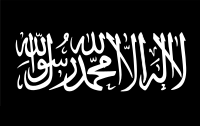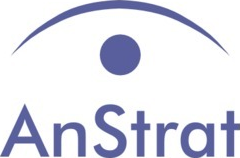
- Local Name: N/a
- Transliteration: N/a
- Alternatives: N/a
- Status: 2010s – Active
- Conflicts: European Islamist Militancy, Syrian Civil War
The Khalid Zerkani Network was a jihadi entity based in Brussels. Originally a criminal gang active in the city’s immigrant-heavy suburbs, it gradually transformed into a militant network. Its members aligned themselves with the Islamic State of Iraq and the Levant [DaIISh; Dawlat al-Islamiya fi-Iraq wal ash-Sham]. Dozens of these elements traveled to Syria and joined the organization. Some of these militants returned to Europe and became responsible for some the DaIISh’s most devastating attacks in Europe.
Historical Overview
The KZN grew out of a small criminal group headed by Moroccan-born Khalid Zerkani in the early 2010s. The charismatic part-time preacher had long attracted young criminals of North African descent. He mentored these elements and gave them a sense of purpose.1 Zerkani convinced his gang members that their activities were religiously-sanctioned plunder of non-believers.2 This message resonated among a segment of local Muslim youths who saw crime as a form of rebellion against their perceived marginalization. His close associate Fatima Aberkane was instrumental in radicalizing the gang’s members.3 Over time, a distinctly Islamist crime group emerged. It disguised its activities by posing as an informal sports association.4
By 2012, Zerkani and his associates wanted to focus more on jihad. The KZN developed contacts with jihadi elements abroad and started discussing plans to launch attacks in Belgium.5 The network also began sending members to foreign conflict zones. In the beginning of the year, several of Zerkani’s followers traveled to Somalia where they joined the Holy Warriors Youth Movement [HSM; Harakat al-Shabaab al-Mujahideen].6
The KZN also established relations with jihadi organizations operating in Syria. Between 2012 and 2014, at least sixty of its members traveled to Syria.7 Several of the network’s most prominent cadres were among them. In Syria, these fighters joined outfits which eventually merged into the DaIISh. By the summer of 2013, many KZN members had joined the elite Syrian branch of the DaIISh’s Libyan Brigade of the Prophets’ Sword [KaBL; Katibat al-Battar al-Libi].8 Senior operative Abdelhamid Abaaoud ascended rapidly through the ranks of the organization.
The scale of the KZN’s recruitment drive and the visibility of its members in Syria alarmed the Belgian government. The authorities eventually began cracking down on the network. In February 2014, police raided sixty premises associated with the KZN across Belgium.9 Dozens of the network’s members were arrested and many others were questioned by the authorities. Zerkani was among those apprehended in the operation.10
In the meanwhile, the DaIISh had started to attack Europe in an unprecedented campaign of terror. KZN operatives such as Abaaoud, Osama Atar and D’niel Mahi emerged as coordinators for many of these attacks. Associates of the network in Belgium provided logistical support to DaIISh fighters returning from Syria to launch operations on the continent. One of Abaaoud’s associates shot and killed four people during an attack on a Jewish museum in Brussels in May 2014.11 After learning of imminent attacks, Belgian police raided a dozen locations linked to the KZN throughout the country on Jan. 15, 2015.12 Terrorists fired at special forces who raided their hideout in Verviers, setting off a gun battle in which two militants were killed. Thirteen other KZN associates were arrested during the raids. In July 2015, a Belgian court condemned the leaders of the KZN to long prison terms. Zerkani was ordered to be jailed for twelve years.13 Abaaoud was sentenced in absentia to twenty years in prison.14
Abaaoud and his associates continued to instigate attacks. They were especially focused on hitting France. Abaaoud allegedly instructed the terrorist who planned an attack on a church in the Parisian suburb of Villejuif.15 The plot was thwarted on Apr. 19, 2015 after the supposed attacker was hurt during preparations for the mission. In August 2015, he was also believed to have ordered a thwarted attack on a rock concert in France and a failed bid to attack passengers aboard a high-speed train in the north of the country.16
Three KZN operatives blew themselves up during the Nov. 13, 2015 Paris attacks in which 130 people were killed.17 Abaaoud served as the DaIISh operation’s coordinator.18 He was killed when French special forces raided his hideout in the Parisian suburb of Saint-Denis a few days later.19 Belgian and French security forces cracked down on DaIISh cells in the weeks following the attacks. Numerous police operations took place against the KZN in Molenbeek and other suburbs of Brussels. Despite the relentless pressure from the authorities, network associates managed to hide several high-profile jihadis for months. In March 2016, KZN cadres working at the behest of the DaIISh staged the suicide bombings against the international airport and subway of Brussels.20 The blasts killed 32 people.
In April 2016, an appeals court handed out longer prison terms to the leaders of the KZN.21 More than two dozen other operatives of the network were sentenced to prison by the Belgian judiciary in May 2016.22 In late 2016, the authorities charged KZN leaders with new crimes.23 Although the KZN has been severely disrupted in the Belgian government’s crackdown, remnants remain active. Several members of the network continue their service in the DaIISh’s external operations branch. A significant portion of the KZN’s rank-and-file members and associates continue to roam Brussels’ troubled suburbs.
Area of Operations
The KZN was based in the Molenbeek suburb of Brussels. Its members were also active in other immigrant-heavy suburbs of the Belgian capital. The network developed deep ties to groups of radical Salafis in several Walloon cities such as Charleroi and Verviers. Apart from its associates in Vilvoorde, the KZN never branched out into Belgium’s Dutch-speaking regions.
Key Leadership
The network was initially headed by its founder Khalid Zerkani. Gelel Atar presumably served as Zerkani’s deputy.24 Other influential members of the network included Abdelhamid Abaaoud, Mohammed Abrini, Othman Akzinnay, Dniel Mahi, Reda Kriket and Najim Laachraoui.25 Fatima Aberkane was also very important to the KZN. She acted as the driving force behind the radicalization of the network’s members.26 Aberkane is also believed to have put the KZN into contact with DaIISh operatives.27 Nowadays, most KZN leaders have either been killed or captured. Other senior figures such as Osama Atar and D’niel Mahi are thought to be Iraq or Syria.
Cadre Strength
At its peak between 2012 and 2014, the KZN had well over 100 members. Virtually all its members came from Brussels’ North African immigrant communities. A small number of subsaharan African Muslims were also known to have joined the KZN.28
Modus Operandi
The KZN mainly acted as a recruitment pool and a logistical support base for the DaIISh. The network facilitated the travel of jihadis between Belgium and Syria. It provided DaIISh operatives in Europe with weaponry and false identification documents.29 Network members also gave shelter to jihadis wanted by the authorities.
The KZN was deeply involved in crime. Operatives were often linked to the drugs trade.30 They also robbed tourists in Brussels. The network’s jihadi activities were financed with the proceeds of its members’ criminal dealings.31
External Linkages
The KZN was closely linked to the Jean-Louis Denis Network [JLDN] which operated in northern Brussels. Denis is known to have met with Zerkani and his associates on numerous occasions.32 The networks cooperated in their efforts to send recruits to Syria.33 Some KZN operatives were also active in the JLDN.34
Zerkani and members of his network were in contact with cadres of the Vilvoorde-based branch of the Shari’a for Belgium Movement [Sh4B].35 Despite these links, the KZN is not believed to have established relations with Sh4B’s Antwerp-based leadership.
From 2012 onwards, the KZN became closely linked to the DaIISh. Fatima Aberkane likely acted as an interlocutor between Zerkani’s network and the DaIISh.36 The network emerged as an important logistical support wing for the DaIISh in Europe. Links to other jihadi organizations appear to have broken off following the establishment of relations with the DaIISh. Earlier, a few associates of the KZN had joined Somalia’s HSM.37
In Iraq and Syria, KZN operatives came into contact with fighters recruited by the GMIC Maaseik Remnants Network [GMRN].38 They also became acquainted with members of other Belgian and European jihadi networks.39
References
